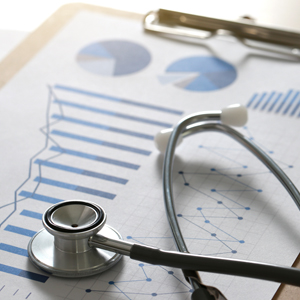
New Report Shows Prevalence of Heart Disease | FMCNA
Nearly half of all Americans are living with some form of heart disease, according to a newly released annual study from the American Heart Association. Both kidney disease and heart disease are often referred to as silent killers because they can go undetected due to a lack of obvious symptoms in the early stages of disease. Heart disease is the number one cause of death in the United States.
“This is an alarming number of people with high blood pressure and other forms of cardiovascular disease,” said Dr. Buck Cross, medical director for National Cardiovascular Partners. “This information is important in our efforts to advance early detection so that any indication of heart or kidney disease can be addressed at the earliest possible time.”
The report, published every year in the American Heart Association’s journal Circulation, reflects 2016 figures from the National Institutes of Health and other government information. It identified 121.5 million adults in the U.S, or 48.5 percent, with cardiovascular disease. This figure was up considerably from 92.1 million identified in 2014. The study attributed part of the rise to new guidelines that now identify high blood pressure as 130/80 instead of 140/90.
“We’re becoming more and more aware of the importance of high blood pressure. Levels we used to think were normal we now associate with worse outcomes, and treating them makes a big difference,” said Dr. Emelia J. Benjamin to the American Heart Association. Dr. Benjamin is a professor of cardiology at Boston University and chair of the group that wrote the report.
Without high blood pressure included, the rate of cardiovascular disease drops to 24 million U.S. adults, or about 9 percent. Over time high blood pressure can damage the heart.
The new guidelines and increasing diagnosis of high blood pressure may help alert primary care doctors to also screen for kidney disease. High blood pressure damages the kidneys over time contributing to chronic kidney disease, while kidney disease can also cause high blood pressure. Early detection of kidney disease is critical to slowing disease progression.
“High blood pressure is a well-known risk factor for kidney disease,” said Dr. Dugan Maddux, vice president of kidney disease initiatives at Fresenius Medical Care North America. “If you have high blood pressure or other heart disease, your health care provider should check your kidney function regularly.”
Nearly 85 percent of patients with chronic kidney disease also have high blood pressure and/or diabetes, according to the United States Renal Data System. About 30 million U.S. adults, or one in seven, are estimated to have chronic kidney disease. Most are undiagnosed, remaining unaware of kidney disease and its potential impact on their lives.
Resources:
Feature: A Cardiorenal Approach: The Close Link Between Kidney Disease and Heart Disease
Feature: Bringing a Wider Lens to Our Medical View
Insight: Cardiovascular Benefits of More Frequent Hemodialysis


